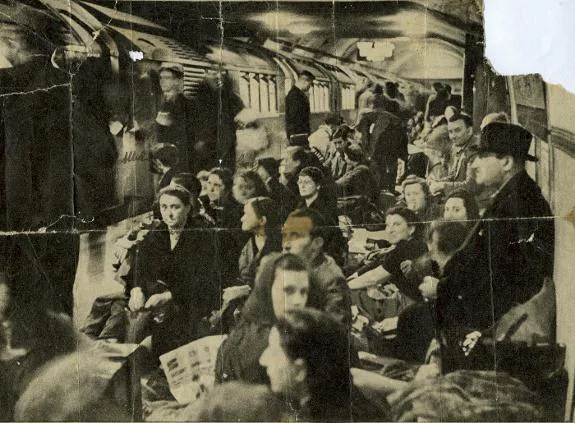

Secciones
Servicios
Destacamos

Debbie Bartlett
Friday, 22 May 2020, 15:10
It is a largely unknown fact that during WW2 the British government decided to turn Gibraltar into a fortress to stop Hitler and Franco seizing it, and ordered all women, children, the elderly and infirm to be evacuated to make room for the troops.
On 22 May 1940 the first group of evacuees were taken to French Morocco, the nearest Allied country, but soon afterwards France capitulated and instead of being safe, the Gibraltarians suddenly found themselves in enemy territory. They were given 24 hours to leave, and the French authorities ordered British ships which were just arriving in Casablanca to take them, threatening to impound the ships unless they did so. They refused the officer in charge, Commodore Creighton, time to clean and supply the ships with food and water, and the evacuees were physically forced on board.
The problem was that Britain didn't know what to do with them. Refused permission to disembark in Gibraltar, they were forced to travel across the Atlantic to avoid the German U-boats, on a 16-day journey from hell to the UK in unhygienic conditions in which several elderly people died.
The Gibraltarians ended up in London during the blitz, and about 13,000 of them lived there for the remaining years of the war. When the war was over, due to lack of accommodation and medical facilities, the Gibraltar authorities had to stagger the repatriation of the people, and it took until 1951 to bring them all home. Many Gibraltarians in London were moved to Northern Ireland to await repatriation, while others were sent to Madeira and Jamaica.
In his autobiography Outside our Comfort Zone, former Housing Minister Charles Bruzon, who was a child at the time, describes how it felt to return: "Mixed emotions... incredible joy, fatigue, yearning for their space on the Rock, wondering how they would live and how they would adjust."
Local author Joe Gingell has written two fascinating books about the evacuation, and has offered the texts to the Gibraltar government for its website.
Publicidad
Publicidad
Publicidad
Publicidad
Esta funcionalidad es exclusiva para registrados.
Reporta un error en esta noticia

Debido a un error no hemos podido dar de alta tu suscripción.
Por favor, ponte en contacto con Atención al Cliente.

¡Bienvenido a SURINENGLISH!

Tu suscripción con Google se ha realizado correctamente, pero ya tenías otra suscripción activa en SURINENGLISH.
Déjanos tus datos y nos pondremos en contacto contigo para analizar tu caso

¡Tu suscripción con Google se ha realizado correctamente!
La compra se ha asociado al siguiente email
Comentar es una ventaja exclusiva para registrados
¿Ya eres registrado?
Inicia sesiónNecesitas ser suscriptor para poder votar.